Forgotten Voices of the British Empire
Forgotten Voices of the British Empire
How Knowledge Was Created and Curated in Colonial India and Burma
Carol Ann Boshier
ROWMAN & LITTLEFIELD
LanhamBoulderNew YorkLondon
Published by Rowman & Littlefield
An imprint of The Rowman & Littlefield Publishing Group, Inc.
4501 Forbes Boulevard, Suite 200, Lanham, Maryland 20706
www.rowman.com
8690 Paul Street, London EC2A 4NE, United Kingdom
Copyright 2022 by Carol Ann Boshier
All rights reserved. No part of this book may be reproduced in any form or by any electronic or mechanical means, including information storage and retrieval systems, without written permission from the publisher, except by a reviewer who may quote passages in a review.
British Library Cataloguing in Publication Information Available
Library of Congress Cataloging-in-Publication Data
Names: Boshier, Carol Ann, author.
Title: Forgotten voices of the British empire : how knowledge was created and curated in colonial India and Burma / Carol Ann Boshier.
Other titles: How knowledge was created and curated in colonial India and Burma
Description: Lanham : Rowman & Littlefield, [2021] | Includes bibliographical references and index.
Identifiers: LCCN 2021056581 (print) | LCCN 2021056582 (ebook) | ISBN 9781538159880 (cloth) | ISBN 9781538159897 (epub)
Subjects: LCSH: East India CompanyBiography. | IndiaCivilization17651947. | BritishIndiaHistory. | BritishBurmaHistory. | Scientific expeditionsIndia. | Scientific expeditionsBurma. | Ethnological expeditionsIndia. | Ethnological expeditionsBurma. | Imperialism and science.
Classification: LCC DS428. B67 2021 (print) | LCC DS428 (ebook) | DDC 954.03dc23/eng/20211207
LC record available at https://lccn.loc.gov/2021056581
LC ebook record available at https://lccn.loc.gov/2021056582
 The paper used in this publication meets the minimum requirements of American National Standard for Information SciencesPermanence of Paper for Printed Library Materials, ANSI/NISO Z39.481992.
The paper used in this publication meets the minimum requirements of American National Standard for Information SciencesPermanence of Paper for Printed Library Materials, ANSI/NISO Z39.481992.
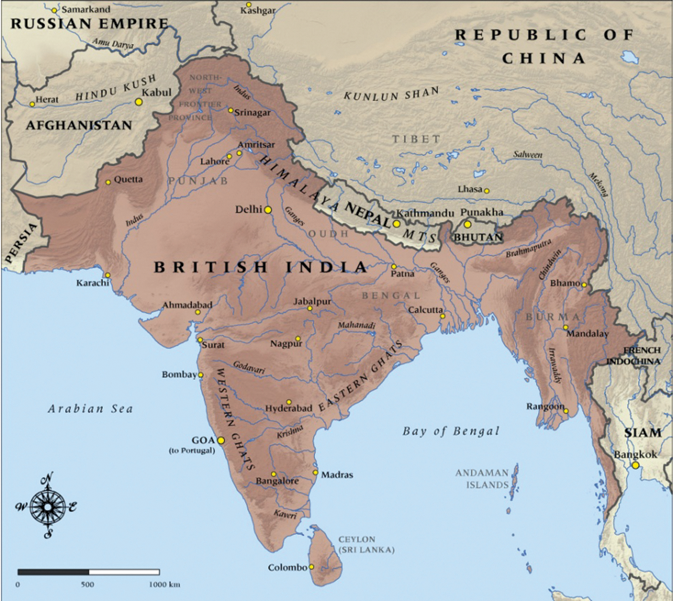
Figure 0.1. Map of British India in 1914, produced by Geographx with research assistance from Damien Fenton and Caroline Lord. URL: https://nzhistory.govt.nz/media/photo/map-british-india-1914 (Ministry for Culture and Heritage), updated 30 Nov. 2018.
List of Figures
Acknowledgements
Throughout my research into the unremembered subjects of this book, who contributed in manifold ways to our store of knowledge about India and Burma, I have been helped and encouraged by many people. Keepers of archives, institutions, libraries and independent scholars have all generously shared their expertise with me. I am grateful for their support in my quest to uncover seldom-heard voices that bear witness to the diverse connections between colonised and coloniser. Their histories contribute towards a rich tapestry of knowledge that gainsays the notion of the colonial encounter as binary or uncomplicated.
I am grateful to Dr Savithri Preetha Nair, whose extensive scholarship on Raja Serfoji IIs Court at Tanjore inspired me to situate Francis Whyte Ellis within that sphere of plural cultural enlightenment. I would also like to thank Dr Isabelle Charmantier of the London Linnean Society, who generously shared her time to explain the intricacies of Carl Linnaeuss System of plant classification and to show me many of the Societys botanical drawings. The opportunity to view Francis Buchanan-Hamiltons paper index slips provided a tangible link to his great dedication to botanising. Dr Jorg A. Schendel kindly sent me his unpublished dissertation on the Mandalay economy, which gave me a valuable context when writing Chapter 6.
Despite the pandemic caused by COVID-19, all of the libraries and institutions that I approached went out of their way to help with information and high-resolution images, even when they were closed and most staff were working from home. I am grateful to the staff of the Asian and African Studies reading room at the British Library, who always do so much to assist their readers, making research such a pleasure. I would especially like to thank Asian and African Studies researcher, Aliki Anastasia Arkomani, whose skills uncovered the court case of the unfortunate Mrs De Souza and Lieutenant Walton. Also at the British Library, I am indebted to Magdalena Peszko and her colleagues in the Map Department for arranging exceptional permission to publish the image of Dr Clement Williamss cloth map. Although its magnificent colours will only appear in the electronic version of this book, his map brings us closer to Williamss affinity with Burma and its unique culture. Ms Pam Hobbs, a nurse from Sydney, Australia, shared her familys connection with Dr Williams, whose mixed-race daughter, Marie Rose, was her great-grandmother. These personal details have helped me to bring these long-lost characters to life, allowing them to become real people, rather than a forgotten voice in the archive.
My friend and Burma scholar, Patrick McCormick, kindly read and commented upon the draft manuscript, offering wise counsel and encouragement. Despite having to make the difficult decision to leave Yangon during the recent unrest after 15 years of residence, he remains one of the few Western academics who can truly claim to know the country. My thanks also go to Dr A.V.M. Horton for his impeccable index and commentary. Finally, I would like to thank my family for all their support, especially my daughter Aliette, to whom I owe a tremendous debt of gratitude. She has truly shown her mettle in her meticulous editing of my footnotes. Needless to say, all the errors and omissions in this book are my own. The joy of writing it has been not only in discovering the forgotten voices of individuals who contributed to knowledge about that behemoth known as colonial history, but also in my encounters with all those who have helped me along the way.
Introduction
It is now clear that the colonial landscape was inhabited by a great multiplicity of groups whose constitution was neither discrete nor stable from context to context, and each of these groups had different agendas as well as different capacities to realize them.
Eighteenth-century European Enlightenment thinkers disseminated intellectual ideas that were informed by scientific reason, as they sought freedom and equality for all in the application of unbounded universal knowledge. A significant feature of this increasing knowledge was expressed in a concern for realism in discipline, for systematic description in collection, and for comparative method in explanation. since its first ships had arrived in Surat in 1608. The ways in which information was gathered and converted into accessible forms became a vital element in the projection of the Companys authority and in substantiating its claims to legitimacy which, after the Revolution of 1857, were sustained by the Government of India, and which also relied upon the acquiescence of colonisers and colonised to carry out policies created in the metropole. From the late eighteenth century, the Companys attention was concentrated upon commercial exploitation of resources, with little formal thought or forward planning for how information was to be acquired and political intelligence gathered. This was made possible by the endeavours of the EICs covenanted and uncovenanted servants: soldiers, surgeons, surveyors and administrators, all aided by members of the indigenous population. Along with many others, they undertook the task of surveying new territory, collecting, cataloguing and studying languages, history and culture, as well as investigating the numerous archaeological sites and hitherto unknown species of flora and fauna.

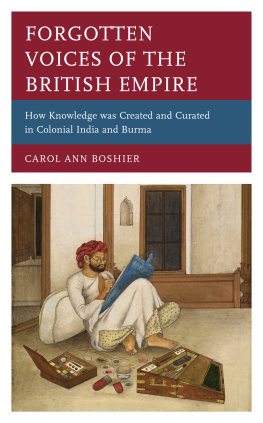

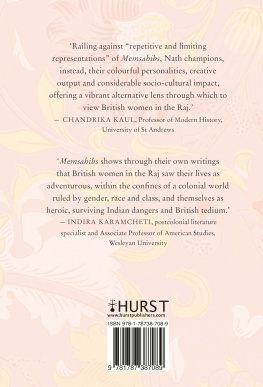
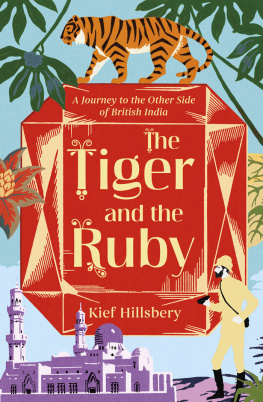
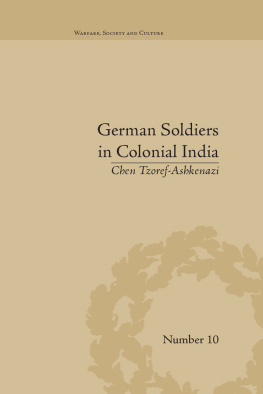
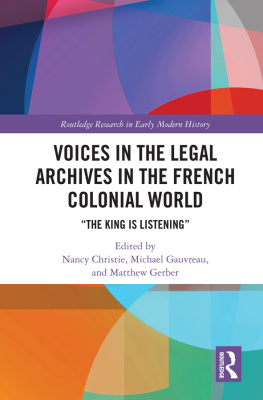

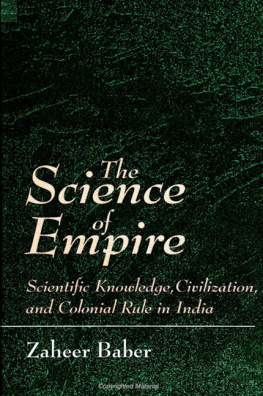
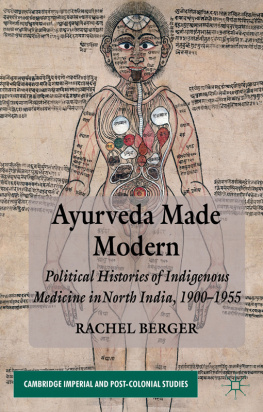
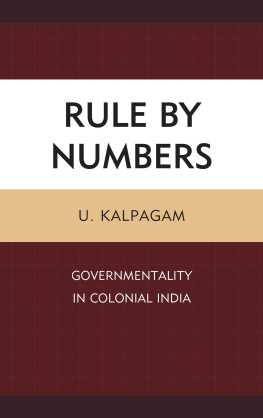

 The paper used in this publication meets the minimum requirements of American National Standard for Information SciencesPermanence of Paper for Printed Library Materials, ANSI/NISO Z39.481992.
The paper used in this publication meets the minimum requirements of American National Standard for Information SciencesPermanence of Paper for Printed Library Materials, ANSI/NISO Z39.481992.